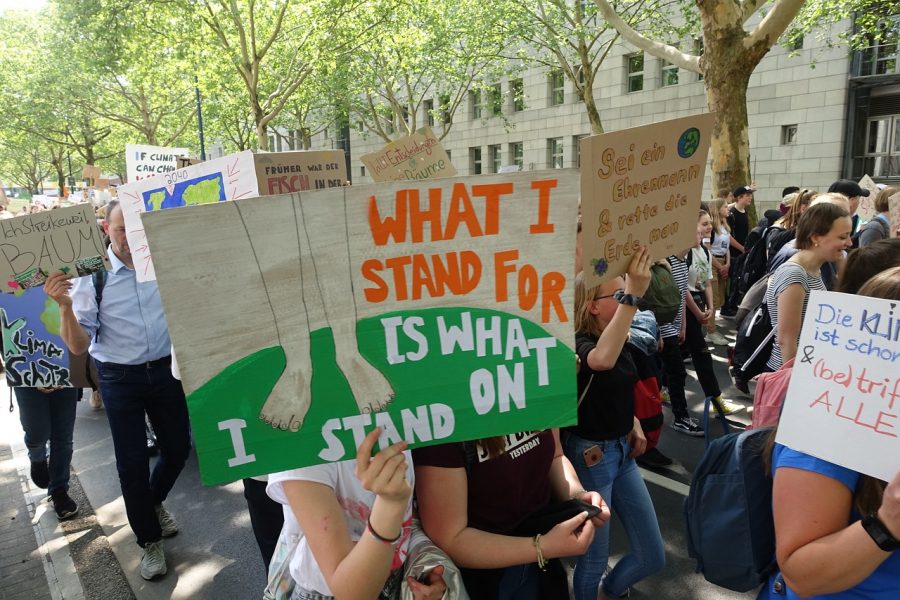McGrath: Thought the Pandemic Was Bad? Wait Till You See Climate Genocide
September 3, 2020
It might feel like 2020 is out to get us. In addition to Trump’s impeachment and acquittal and rumors — not to mention memes — of an imminent World War III, the year began amid the Australian bushfires. Right now, California is experiencing some of the largest wildfires in the state’s history. And the Atlantic hurricane season is predicted to be particularly severe due to a combination of several climate factors, with Hurricane Laura already becoming one of the worst storms ever to hit the US.
Natural disasters are normal, but not to this degree. The upcoming “seasons” of environmental crises are fueled by climate change. And the United States’ poor response to the current global health crisis shows us we aren’t ready for the next one. America’s politicization of and resistance to science is catalyzing the climate crisis. (It’s not 2020, in other words — it’s us.)
The countries with the highest rates of coronavirus infection all have one thing in common — their leaders have downplayed the virus from the beginning. The US has almost the highest infection numbers in the world, while countries like New Zealand and Taiwan have less than 10 new cases a day. Still, Trump claims the United States had “among the lowest case fatality rates of any major country.” This display of incompetence and denial isn’t limited to our president. During quarantine months, protests against COVID-19 related restrictions forced local leaders to lift stay-at-home orders. Utah County parents recently protested school mask mandates and conspiracy theories continue to float around that masks are designed to infringe on American freedom and can cause brain damage due to lack of oxygen.
Republicans and Democrats are divided on the US response to the pandemic — making it even more eerily similar to another debated scientific issue.
Even with fires under our noses and unnatural hurricanes quite literally swirling around us, Trump’s cabinet and staff are full of those who have denied and questioned the reality of climate change. On the president’s orders, the US officially began leaving the Paris Climate Agreement in late 2019. As of 2016, only 53% of American voters think climate change is caused by human activities, while 97% of climate scientists believe humans are to blame. Many Republican leaders are threatened by policies that would raise the cost of burning fossil fuels and coal, indicating they’ve chosen to ignore the climate crisis in favor of financial gain.
With that in mind, it’s critical to note that just 100 fossil fuel companies and producers are responsible for 71% of greenhouse gas emissions since 1988. That means it’s largely thanks to them that the UN reports a climate genocide is coming. In fact, five years ago the World Health Organization predicted rising global temperatures would lead to 250,000 additional deaths per year by 2030. A newer report suggests 250,000 is a “conservative estimate.” Before long, the climate crisis will become a public health issue akin to the coronavirus — except we won’t be able to stop it.
This isn’t a conspiracy theory that has been circling the internet. It’s in our faces. COVID-19 and climate change are already disproportionately affecting those the federal government is failing to protect. This will affect people in low-income areas who are unable to flee natural disasters and deadly heatwaves, while wealthy residents — like those who left New York City when COVID-19 began to spread — remain largely unscathed. As climate reporter, Sarah Kaplan wrote in August, “Both disasters were predicted by scientists and could have been prevented, or at least mitigated, by swift and early action.” Both of these issues boil down to the same overarching theme: we need to believe scientists and science, not politicians. Instead, the pandemic has levied extreme stress and worry on those affected — especially diverse, low-income neighborhoods — while politicians have disregarded scientific evidence and finger-pointed blame.
The COVID-19 crisis gives us a glimpse of our upcoming battles against climate change — disproportionate impacts on low-income, minority neighborhoods and politicians ignoring pleas while waiting too long to act. Proper preparation and trust in scientific findings could have prevented the pandemic and the impending climate disaster alike. We have failed with the response to COVID-19, and the consequences will be even more unforgiving if we fail again with the climate crisis.







